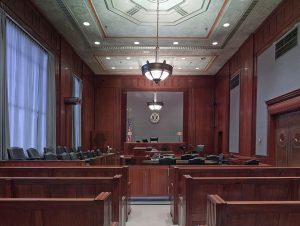 Once the criminal justice system starts moving against a defendant in Maryland it becomes extremely difficult to undo the process. We are often contacted by victims who are requesting assistance in dropping charges against a defendant, and if you happen to be in this situation there are a few things to keep in mind. First off, victims in a criminal case never have total control over the prosecution of the case. The State is the plaintiff in all Maryland criminal actions, and it is represented by the State’s Attorney’s Office in the county (or Baltimore City) where the case is prosecuted. The assistant State’s Attorney or the supervisor assigned to the case will have the ultimate decision whether to drop the charges or prosecute. As a general rule prosecutors will not simply drop a charge because the victim has had a change of heart, but this does not mean it’s out of the question. If you are a victim and want to have criminal charges dropped your best bet in many jurisdictions is to reach out to the State’s Attorney’s Office, and inform them in writing of your desire to drop the charges. Keep in mind that you should not make any incriminating statements, whether written or verbal. You should also never admit that you lied or exaggerated with respect to any statements made to the police or written in a statement of charges. Doing so could subject you to criminal prosecution for false statement to a law enforcement officer and in some extreme cases even perjury, so we advise consulting to a lawyer before speaking to the State’s Attorney’s Office about dropping charges.
Once the criminal justice system starts moving against a defendant in Maryland it becomes extremely difficult to undo the process. We are often contacted by victims who are requesting assistance in dropping charges against a defendant, and if you happen to be in this situation there are a few things to keep in mind. First off, victims in a criminal case never have total control over the prosecution of the case. The State is the plaintiff in all Maryland criminal actions, and it is represented by the State’s Attorney’s Office in the county (or Baltimore City) where the case is prosecuted. The assistant State’s Attorney or the supervisor assigned to the case will have the ultimate decision whether to drop the charges or prosecute. As a general rule prosecutors will not simply drop a charge because the victim has had a change of heart, but this does not mean it’s out of the question. If you are a victim and want to have criminal charges dropped your best bet in many jurisdictions is to reach out to the State’s Attorney’s Office, and inform them in writing of your desire to drop the charges. Keep in mind that you should not make any incriminating statements, whether written or verbal. You should also never admit that you lied or exaggerated with respect to any statements made to the police or written in a statement of charges. Doing so could subject you to criminal prosecution for false statement to a law enforcement officer and in some extreme cases even perjury, so we advise consulting to a lawyer before speaking to the State’s Attorney’s Office about dropping charges.
In some jurisdictions the prosecutors are too busy to prosecute cases with uncooperative victims. Dozens of cases are dropped each day in places such as Baltimore City and Prince George’s County because victims fail to show up for court, but there is no blanket policy for this. A defendant should never expect his or her case to be dropped if the victim fails to show up for court, especially in cases where there the defendant and victim have had prior contacts with the criminal justice system. In cases where the victim does not show up for court, prosecutors have the ability to seek a body attachment for witnesses that have been served with a summons to appear in court. This means the sheriff could actually arrest a victim of a case and hold them in custody until the trial has concluded. This is pretty rare, but is not out of the question in felony assault cases and even second-degree assault cases involving injuries or repeat offenders.
A victim who is summonsed to appear in court must legally comply with the summons regardless of whether they want the case to move forward. But there are still ways to have the case dismissed or nolle prossed upon showing up for court. In cases where the victim and defendant are married, the victim cannot be compelled to testify against his or her spouse. The marital privilege has a few exceptions including that it cannot be invoked in a case involving child abuse and cannot be used more that once in an assault case, but other than that it is usually a foolproof way to have a case dropped. Keep in mind that the State could still choose to move forward without the testimony of the victim, but they would need some sort of other evidence such as independent witness testimony or the recording of a 911 call. In addition to marital privilege, a victim may also be able to invoke the 5th Amendment. No person can be compelled to testify in a criminal case if their testimony could be incriminating and result in potential charges. 5th Amendment invocation is common when two people are victims and defendants over the same incident, but it can be used in assault cases where only one person was charged. There are some exceptions to 5th Amendment invocation, and Benjamin Herbst is a Maryland second-degree and first-degree assault lawyer that offers free consultations about this and all other criminal matters. He is available 7 days a week at 410-207-2598.
 Criminal Defense Lawyer Blog
Criminal Defense Lawyer Blog

